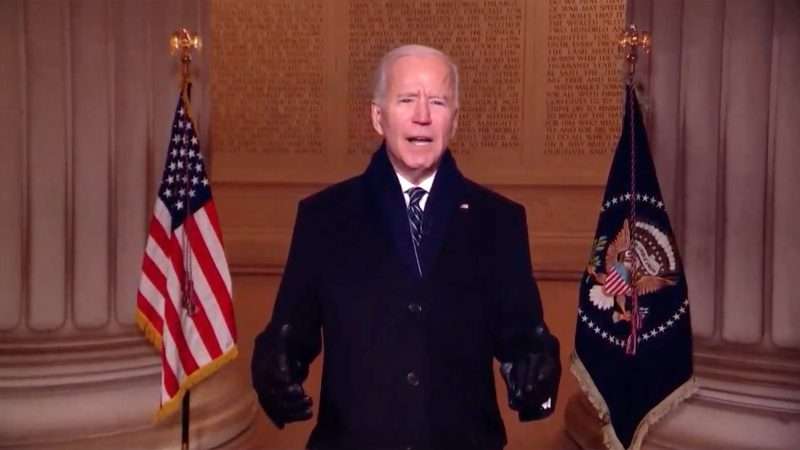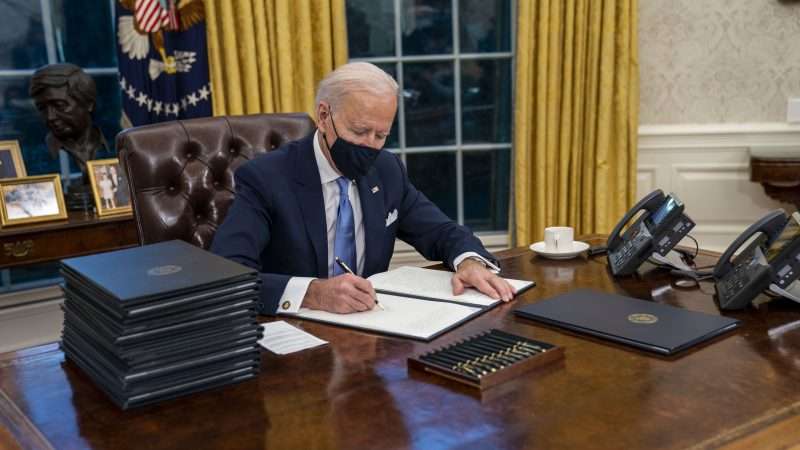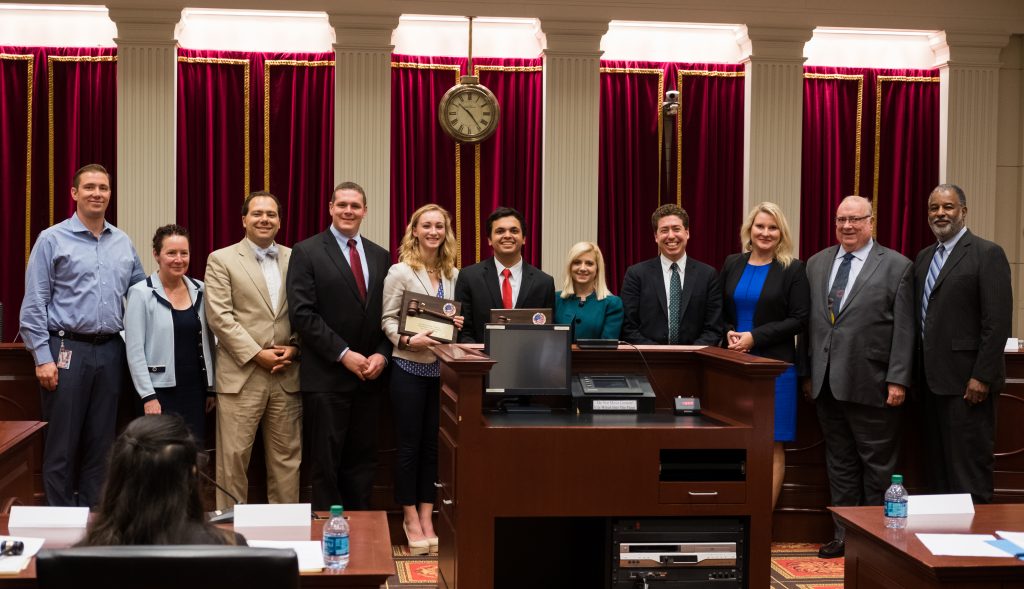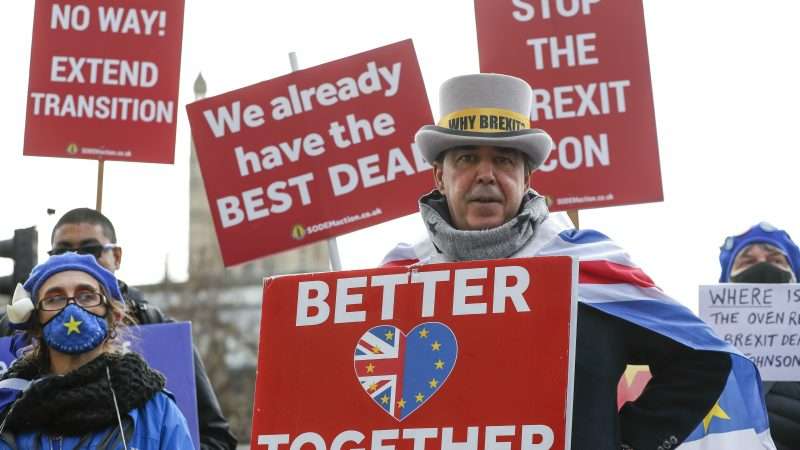It was early January when Theresa Mathis’ November 22 letter arrived in my mailbox. It had come the long way: from a women’s prison in Central Florida to Reason‘s Los Angeles office, and then back to my home address in South Florida.
Mathis was asking for help. She had sold some hydrocodone pills to an undercover cop, and now she was 12 years into a 25-year mandatory minimum sentence. It was her first offense. She’d entered prison at 50 years old. Mathis had recently read about how some state attorney’s offices in Florida were, in an acknowledgment that sentences like hers were insane, revisiting opioid cases and striking deals to release inmates on time served.
“It is a blessing that I found you and at the right timing,” she wrote.
I forwarded a picture of Mathis’ letter to my former Reason Foundation coworker, Lauren Krisai. We had worked together on a 2017 investigation into how Florida’s opioid trafficking laws resulted in draconian sentences for low-level and first-time offenders. Krisai had pored over hundreds of these cases. She didn’t recognize Mathis’ name, so she looked her up on the Florida Department of Corrections website.
The timing was not right.
Mathis, 62, died on December 29 in prison. As I looked at her letter—written in neat cursive except for “God bless u” squeezed into the lower right corner—I felt sick.
I wondered how Mathis ended up in Lowell Correctional Institution, a place so wretched that the Trump Justice Department recently put Florida on notice that the conditions there violated women’s constitutional rights against cruel and unusual punishment. A 2015 Miami Herald investigation found, in addition to rampant sexual abuse, inadequate medical care, rancid food, and vermin infestations.
A transcript from Mathis’ 2009 sentencing hearing started to fill in the blanks. Mathis had pleaded guilty to three counts of trafficking hydrocodone after selling pills to an undercover officer and a confidential informant.
“I had a dependency on prescription pills which clouded my judgement,” Mathis begged the judge. “I have a loving family waiting for me in Michigan. I also have a brand new grandson that I would like to help raise, also three sons in their twenties. I worked at General Motors for 20 years and can be a productive human being. There is a good possibility that I could get my job back and retire in 10 years. Please don’t take my life away from me.”
The Florida legislature passed harsh mandatory minimum sentences in 1999 in response to the state’s booming black market for opioid pills. The laws were supposed to target drug kingpins, but the weight thresholds to trigger a mandatory minimum sentence were so low that they mostly ensnared people selling to support their habit.
Like many other cases Krisai and I had come across, the judge at Mathis’ sentencing was disgusted at the sentence he was required to impose, but he had no choice.
“I do not for the life of me understand why the Florida legislature has come up with the mandatory minimum sentences they have for prescription painkillers, in which a relatively—in the court’s view—small amount of prescription painkillers results in just an incredibly harsh sentence,” circuit judge Jon Morgan said. “But it is not my job or option as a judge to decide what the law should be. I’m required to follow the law as it is. And I’m sorry that it is what it is in your particular case.”
From the transcript, I got the name of Mathis’ lawyer at the time, Brock Shields. More than a decade later, Shields remembered the case well and told me it was one of the sadder ones he’d worked. “She was a very nice woman caught up in a real difficult situation,” he wrote to me.
The reason Mathis got the full 25 years, Shields said, was that she turned down a nine-year plea deal and instead entered into an agreement to provide “substantial assistance” to law enforcement. This means becoming a confidential informant and setting up other sellers. The more deals you set up, the more time you get knocked off your sentence. The catch is you have to plead guilty in advance, and if you can’t deliver, you’ll take the full sentence on the chin.
Shields said he advised Mathis against turning down the plea deal, but he can understand why she rolled the dice. Imagine looking at nine hard years in Florida state prison—no air conditioning, by the way—or the chance to avoid most, maybe all of it, if you could just give the police enough other names. Shields didn’t see any way that Mathis could get enough cases to get her sentence below nine years, though. “It wasn’t going to happen,” he said.
The result of this is that well-connected dealers walk while small fish like Mathis end up on the hook. For example, Reason‘s 2017 investigation described the case of Cynthia Powell, a 40-year-old grandmother who was sentenced to 25 years in prison for selling pills to an undercover police officer. Powell had also entered into a substantial assistance agreement with prosecutors but was unable to deliver.
Shields gave me the phone number for Benjamin Mathis, one of Theresa Mathis’ three sons. We talked several days after her funeral. That was the first time in 12 years that Benjamin had seen his mother. It was the first time Theresa Mathis’ grandchildren had ever seen her.
“We always worried about my mother and father,” he told me. “We just didn’t get to see them, because it wasn’t like they were incarcerated here where I can go visit them. It really ripped our family apart.”
Mathis described his mother as a good-hearted person, hard worker, born and raised in Saginaw, Michigan. She wasn’t into the drug scene, he said, but went down a bad path.
In prison, she had chronic obstructive pulmonary disease (COPD) and other lung ailments that led to difficulty breathing, but Mathis says she couldn’t get any treatment. She had just recently been approved for a transfer to another prison and, from what Mathis could gather from other inmates, was carrying her possessions out when she collapsed from an apparent heart attack.
“I feel like the prison itself killed her,” Mathis says. “If she was at home, staying with me, she would have been fine. She would have had a lot of the treatment.”
Mathis wonders if his mother had COVID-19, but he says the Florida Department of Corrections (FDOC) didn’t perform an autopsy. He doesn’t have the money to pay for one, or for a lawyer to sue the FDOC, so the exact causes and circumstances of her death will likely remain unknown.
Mathis shared texts and pictures he had been sent from other women who had been incarcerated with his mother. “I slept next to your mom for over a year,” one read. “I would hold her hand. The best soul in the world, feisty as can be, great spirit.”
Another message included a letter Theresa Mathis had sent on December 12. “I’m now 62 and COPD has gotten worse,” she wrote. “I’m struggling. To top it off they put me in the kitchen. Baby, I’m pressing forward.”
The shame of it all is that there is widespread acknowledgment that sentences like Mathis’ were a mistake.
In 2014, the Florida legislature increased the minimum weight thresholds that triggered the mandatory minimum sentences for opioid trafficking. However, those changes were not retroactive. They meant nothing for Mathis or the hundreds of other inmates who are still serving sentences that are no longer on the books. Bills were introduced to fix the situation for these inmates, but the legislation went nowhere, despite ceaseless lobbying from prisoner advocates and groups like FAMM, a nonprofit that opposes mandatory minimum sentences.
“I am heartbroken and nauseated by the thought of Theresa Mathis dying in a prison cell, and I hope her memory haunts every member of the Florida Legislature until they fix the stupid laws that kept her there unnecessarily,” says Greg Newburn, the Florida director of state policy for FAMM.
Some prosecutors’ offices around Florida have started to review old opioid sentences, including the Orange-Osceola State Attorney’s Office, which handled Mathis’ case. Mathis had in fact recently received an application from the office to have her sentence reviewed. She would have been a prime candidate.
But everything happened too late. The Florida legislature reduced the trafficking thresholds too late. Lawmakers dithered on making those changes retroactive. Prosecutors didn’t start second-guessing the wisdom of warehousing first-time drug offenders until it was too late. The mail was too late.
There are hundreds of other opioid offenders still serving outdated opioid trafficking sentences in Florida prisons, though. One of them is Benjamin Mathis’ father, who was sentenced along with Theresa Mathis.
“He’s still in prison, and I just want to iterate how important it is to try to get him home,” Mathis says.
If lawmakers need convincing, I have a letter I can forward. I believe it belongs to them.

from Latest – Reason.com https://ift.tt/2LPUjXi
via IFTTT







 I mention that headline for two reasons. First because, if I were an American, I might easily have formed the impression that Brexit was the U.K.’s version of Trumpism—nostalgic, nativist, and protectionist. This view, propagated by both supporters and opponents of Trump, finds almost hysterical expression in the pages of
I mention that headline for two reasons. First because, if I were an American, I might easily have formed the impression that Brexit was the U.K.’s version of Trumpism—nostalgic, nativist, and protectionist. This view, propagated by both supporters and opponents of Trump, finds almost hysterical expression in the pages of